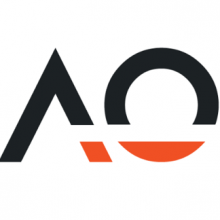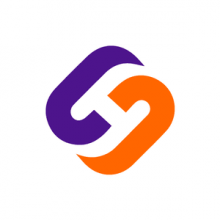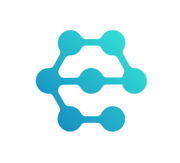
There are 5 Companies in Finland
that provide Flutter Development Services!
Finland’s IT sector is one of the most advanced in Europe and the second-largest IT hub in Northern Europe. The country has been through a strong digitalization process in the early 2000s, and skilled specialists are more and more attracted to discover the digital and tech possibilities the country has to offer.
Discover Top IT Companies in Finland specialized in Flutter and other related services. Find the best IT service providers for your projects.
Flutter is an open-source UI (User Interface) framework developed by Google for building natively compiled applications for mobile, web, and desktop from a single codebase.
It was officially introduced by Google in May 2017, although its development began earlier as an internal project named "Sky." It aimed to address challenges in cross-platform mobile app development by providing a consistent and high-performance framework for building native-like apps on iOS, Android, and other platforms. Flutter has since gained significant traction and popularity in the developer community.
Handpicked companies • No obligation to hire • 100% risk-free
Explore Top Flutter Development Companies in Finland
Techgropse is a leading Mobile App and Web Development Company, dedicated to turning innovative ideas into remarkable digital solutions. 500+ Clients
Custom Software, MVP & AI‑Powered SaaS Development
Custom software development and staff augmentation services
Filter Flutter Development Companies in Finland by Cities
Find the right tech company near you or from a specific city. Some of the best companies might be located in smaller cities.
Find more Flutter Development companies around the world
TechBehemoths is the world's most advanced and user-friendly platform to match IT Companies with real clients without hustle.
The Finnish IT Industry: Country Profile & Companies
Finland’s IT sector is one of the most advanced in Europe and the second-largest IT hub in Northern Europe. The country has been through a strong digitalization process in the early 2000s, and skilled specialists are more and more attracted to discover the digital and tech possibilities the country has to offer.
Among other things, Finland ranked 1st globally in the happiness index 4 years in a row, which gives another reason for skilled IT specialists to enter the local market, and the native Finnish professionals to remain and continue to develop the country's IT and the entire business ecosystem.
Finland’s contribution to the world's digitalization is huge - they brought the SMS, 5G, and Linux OS. This highlights, even more, the capabilities of Finnish tech workers in the field.
Why Work With Finnish IT Companies
Finnish IT companies made their way through the European IT market in 2008-2010, but at that time the market only started to grow and didn’t provide enough possibilities to Finnish companies to gain a world name. However, in 2015, IT companies from Finland managed to break the market with improved UI/UX solutions, high performance in software and web development, and also numerous startup incubators that relaunched the country’s IT sector and made it one of the most famous in the world.
From Finnish IT companies and digital agencies, you can expect everything from excellent and outstanding services. The 3400+ IT companies provide high-quality services for the local market via public-private partnerships, and for the international market via BPO, and direct services due to the open European Market.
Most Finnish IT companies are SME’s which are supported and facilitated by the government and local policies. In Finland, companies usually join IT parks and tech communities that help businesses find and benefit from local digital services.
What You Should Be Aware of When Working With Finnish IT Companies
According to Glassdoor, the average annual salary in the Finnish IT sector is 92,290 euros, which is also makes it higher than the average salary and hourly rate, which is 44 euros. In these regards, you may want to pay attention to prices before working with a digital agency from Finland.
Everything else, from project management and dev skills, should not be a reason for concern since Finnish skilled workers are enough, and everywhere in the local companies.
Are Finnish Companies Reliable?
The most well-known thing about Finnish IT companies is their high-quality services and products. This is why reliability is not a question for local digital agencies and companies from Finland. Also, due to market stability and reliability, foreign investors and IT companies are choosing Finland as their next location for new offices.
How Does the Finnish IT Sector Relate to the Neighboring Countries?
Across Europe, there are traditional IT sectors and more innovative ones. Finland focuses more on innovation and tries to bring digitalization to new sectors of the economy. There are eight pillars of the Finnish digital economy, and all of them connect each part of the economy and society to the web:
- Digital Trust
- AI
- Intelligent Connectivity
- New Space Economy
- Smart Mobility
- Data Centers
- Retail Tech and Ecommerce
- Financial Technology.
Some of these pillars are present in the traditional IT sectors such as FinTech, E-commerce, and Data Centers. The neighboring Sweden, for example, focuses more on e-commerce and FinTech, but lacks other digital directions that Finland has.
The latest Finnish sector that goes through digital transformation is the medical sector. Finnish digital agencies and IT companies focus now on providing a comfortable place for doctors and patients using digital technologies. This comfort touches aspects like interior design, acoustics, access to information, entertainment, and extends up to neural networks and involves AI in the surgery processes.
What is Flutter and what are its benefits for your projects?
Flutter is an open-source UI (User Interface) framework developed by Google for building natively compiled applications for mobile, web, and desktop from a single codebase.
It was officially introduced by Google in May 2017, although its development began earlier as an internal project named "Sky." It aimed to address challenges in cross-platform mobile app development by providing a consistent and high-performance framework for building native-like apps on iOS, Android, and other platforms. Flutter has since gained significant traction and popularity in the developer community.
Flutter has seen rapid adoption, thanks to its key advantages, such as a single codebase for multiple platforms, a rich set of pre-designed widgets, and fast development cycles. It has found use in various industries, including mobile app development, web development, desktop applications, and even embedded systems. Some notable apps developed with Flutter include Alibaba, Google Ads, eBay Motors, and more. Its usage continues to grow, and it has a strong developer community and ecosystem.
Flutter is versatile and suitable for a wide range of projects:
- Mobile Apps: Flutter is commonly used for developing mobile applications, including consumer apps, business apps, e-commerce apps, social media platforms, and more. It provides a native-like experience on both Android and iOS.
- Web Apps: Flutter can be used to build web applications, allowing developers to target browsers as well. This is still in the experimental phase (as of my knowledge cutoff date), but it shows promise for building responsive web interfaces.
- Desktop Applications: Flutter supports desktop platforms like Windows, macOS, and Linux. Developers can create desktop applications for various purposes, including productivity tools and utilities.
- Embedded Systems: Flutter can be used to create user interfaces for embedded systems and IoT (Internet of Things) devices, providing a consistent look and feel across different hardware.
- Custom UI Components: Flutter is often used to build custom UI components and widgets that can be integrated into larger applications, providing a cohesive design language.
Hourly rates for Flutter developers can vary significantly based on factors like location, experience, project complexity, and demand. On average, Flutter developers may charge anywhere from $25 to $150 or more per hour. Rates tend to be higher in regions with a higher cost of living, such as North America and Western Europe, and lower in regions with lower living costs, such as Asia and Eastern Europe.
It's important to note that more experienced and specialized Flutter developers with a strong track record may charge higher rates. Additionally, some developers or development agencies may offer fixed-price contracts for specific Flutter projects, which can vary widely based on the project's scope and requirements.
When hiring Flutter developers, it's essential to consider factors like their expertise, portfolio, and the complexity of your project. Getting multiple quotes and conducting interviews can help you determine a reasonable rate and find the right developer or team for your specific needs.
We have also written an extensive research of what skills you should be looking for when hiring Flutter developers.




